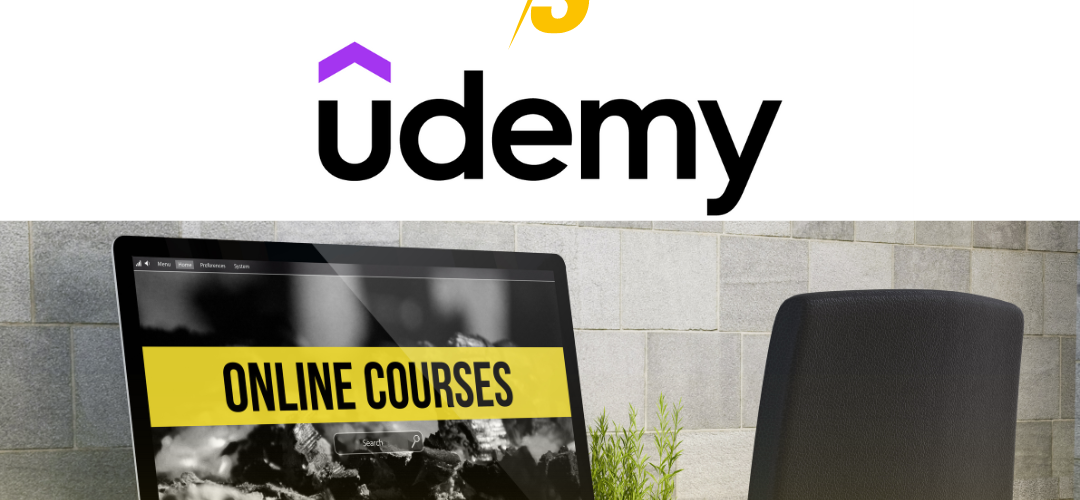Online Learning Platform Review: Coursera vs. Udemy

The landscape of education has dramatically changed in the past decade, with online learning platforms becoming increasingly popular. Among these platforms, Coursera and Udemy stand out as two of the most prominent and widely used. Both offer a vast array of courses and learning opportunities, but they cater to different needs and preferences. This detailed review will compare Coursera and Udemy across various aspects, including course offerings, pricing, learning experience, certification, and more. By the end of this article, you should have a clearer understanding of which platform might best suit your educational goals.
Overview of Coursera and Udemy
Coursera
Coursera was founded in 2012 by two Stanford University professors, Andrew Ng and Daphne Koller. The platform partners with top universities and organizations worldwide to offer courses, specializations, and degrees in a wide range of subjects. Coursera is known for its high-quality content, rigorous academic standards, and accredited certifications.
Udemy
Udemy, founded in 2010 by Eren Bali, Gagan Biyani, and Oktay Caglar, is a marketplace for online learning and teaching. It allows anyone to create and sell courses, resulting in a diverse range of content and teaching styles. Udemy offers courses on nearly every imaginable topic, from professional development to personal hobbies.
Course Offerings
Coursera Course Offerings
Coursera offers a structured and academic approach to online learning, with courses designed and taught by professors from leading universities and experts from reputable organizations. Key offerings include:
Courses: Individual courses on a wide range of subjects, from computer science and business to arts and humanities.
Specializations: Series of related courses designed to build expertise in a specific field, often culminating in a capstone project.
Professional Certificates: Programs aimed at helping learners gain job-relevant skills and industry-recognized credentials.
MasterTrack™ Certificates: Portions of master’s degree programs that can be counted toward a full degree.
Online Degrees: Full bachelor’s and master’s degrees from accredited universities, delivered entirely online.
Udemy Course Offerings
Udemy’s course offerings are vast and varied, thanks to its open marketplace model. This diversity allows for a wide range of subjects and teaching styles. Key offerings include:
Courses: Over 155,000 courses on a myriad of topics, including technology, business, personal development, arts, and more.
Bundles: Groupings of related courses offered at a discounted price.
Udemy for Business: A subscription service providing access to a curated collection of courses for corporate training and employee development.
Pricing
Coursera Pricing
Coursera operates on several pricing models:
Free Courses: Many courses can be audited for free, allowing access to course materials without receiving a certificate.
Paid Courses: Individual courses typically cost between $29 and $99, which includes access to graded assignments and a certificate upon completion.
Specializations and Professional Certificates: These programs usually cost between $39 and $79 per month, with the total cost depending on the duration of the program.
Online Degrees: Full degrees can range from $15,000 to $25,000, depending on the program and university.
Udemy Pricing
Udemy courses are typically priced individually, with frequent discounts and sales:
Individual Courses: Prices range from $10 to $200, but courses are often available at a significant discount, sometimes as low as $10 to $20 during sales.
Bundles: Course bundles offer a discounted price for purchasing multiple related courses together.
Udemy for Business: Subscription pricing for businesses varies based on the number of users and specific needs, generally starting at around $360 per user per year.
Learning Experience
Coursera Learning Experience
Coursera’s structured approach provides a more traditional academic learning experience:
Course Structure: Courses are typically divided into weekly modules, each containing video lectures, readings, quizzes, and assignments.
Interaction: Many courses offer peer-reviewed assignments and discussion forums, fostering interaction among learners.
Deadlines: Courses often have set start and end dates with specific deadlines for assignments and exams, encouraging a disciplined learning pace.
Instructor Involvement: Courses are taught by university professors and industry experts, often with direct involvement through videos and feedback on assignments.
Udemy Learning Experience
Udemy’s open marketplace model offers a more flexible and varied learning experience:
Course Structure: Course formats vary widely, with no set structure. Some courses are comprehensive with hours of video content, while others may be shorter and more focused.
Interaction: Interaction with instructors and other students is limited. Some courses offer Q&A sections, but the level of engagement depends on the instructor.
Self-Paced Learning: Udemy courses are entirely self-paced with no deadlines, allowing learners to start and complete courses at their convenience.
Instructor Quality: Instructor expertise varies significantly since anyone can create and sell a course. It’s essential to check reviews and ratings before enrolling.
Certification and Recognition
Coursera Certification
Coursera’s certificates are widely recognized and respected due to their association with top universities and institutions:
Course Certificates: Certificates are awarded for completing individual courses, typically bearing the name of the university or organization offering the course.
Specializations and Professional Certificates: These programs offer a series of certificates, culminating in a final certificate recognizing the completion of the entire specialization or professional certificate program.
MasterTrack™ Certificates: Credits earned can be applied toward a full master’s degree.
Online Degrees: Degrees are awarded by accredited universities and hold the same recognition as traditional on-campus degrees.
Udemy Certification
Udemy offers certificates of completion for all paid courses, but their recognition varies:
Course Certificates: Certificates are awarded upon completing a course. While they indicate the completion of specific training, they do not hold the same weight as those from accredited institutions.
Industry Recognition: Some courses, particularly those in technology and business, may be recognized by employers if the instructor is a known expert or the content is highly relevant.
Professional Development: Udemy certificates can be useful for personal and professional development, but they are not typically regarded as formal qualifications.
Content Quality and Variety
Coursera Content Quality and Variety
Coursera maintains high content quality due to its partnerships with reputable universities and organizations:
Academic Rigor: Courses are designed to meet rigorous academic standards, ensuring high-quality content.
Expert Instructors: Courses are taught by professors and industry experts, providing authoritative and reliable information.
Variety: Coursera offers a wide range of subjects, including science, technology, business, arts, and humanities, with new courses added regularly.
Udemy Content Quality and Variety
Udemy’s open marketplace results in a wide range of content quality and variety:
Diverse Topics: Udemy covers a broad spectrum of subjects, including niche and hobbyist topics that may not be found on more academically-focused platforms.
Instructor Expertise: Quality varies significantly, as anyone can create and sell a course. It’s important to read reviews and ratings to gauge the course’s value.
Practical Skills: Many courses focus on practical, hands-on skills and real-world applications, making Udemy an excellent choice for learning specific tools or techniques.
User Interface and Accessibility
Coursera User Interface and Accessibility
Coursera offers a polished and user-friendly interface:
Ease of Use: The platform is easy to navigate, with a clear layout and intuitive design.
Mobile App: Coursera’s mobile app is well-designed, allowing learners to download courses for offline viewing and track their progress on the go.
Accessibility: Courses often include subtitles and transcripts, making them accessible to non-native speakers and individuals with hearing impairments.
Udemy User Interface and Accessibility
Udemy’s platform is also user-friendly and accessible:
Ease of Use: The interface is straightforward, with clear categories and search functions to find courses easily.
Mobile App: Udemy’s mobile app is highly rated, offering offline access to courses and a seamless learning experience across devices.
Accessibility: Many courses include subtitles, and the platform supports various languages, enhancing accessibility for a global audience.
Customer Support and Community
Coursera Customer Support and Community
Coursera provides robust customer support and community engagement:
Support: Coursera offers a comprehensive help center, email support, and community forums where learners can seek assistance and share experiences.
Community: Discussion forums within courses foster interaction among learners, allowing them to ask questions, share insights, and collaborate on assignments.
Peer Reviews: Some courses include peer-reviewed assignments, providing valuable feedback and fostering a sense of community.
Udemy Customer Support and Community
Udemy’s customer support and community features are somewhat limited compared to Coursera:
Support: Udemy provides a help center and email support, but response times can vary. The platform also offers a refund policy for dissatisfied learners.
Community: Interaction with instructors and other students is limited. Some courses include Q&A sections, but engagement depends on the instructor’s involvement.
Reviews and Ratings: Course reviews and ratings from other learners can provide valuable insights into the course quality and content.
Flexibility and Learning Styles
Coursera Flexibility and Learning Styles
Coursera’s structured courses are ideal for learners seeking a more traditional academic experience:
Structured Learning: Weekly modules, deadlines, and peer-reviewed assignments provide a structured learning environment.
Flexibility: While some courses have set start dates, many offer flexible deadlines, allowing learners to complete assignments at their own pace.
Diverse Learning Materials: Courses include video lectures, readings, quizzes, and hands-on projects, catering to various learning styles.
Udemy Flexibility and Learning Styles
Udemy’s self-paced courses offer maximum flexibility for learners with varying schedules and learning preferences:
Self-Paced Learning: Learners can start and complete courses at any time, making Udemy ideal for those with busy schedules or unpredictable commitments.
Diverse Teaching Styles: The open marketplace model results in diverse teaching styles, catering to different preferences and learning needs.
Practical Focus: Many courses emphasize practical, hands-on learning, with step-by-step tutorials and real-world applications.
Both Coursera and Udemy offer valuable learning opportunities, but they cater to different needs and preferences. Here’s a summary to help you decide which platform might be best for you:
Choose Coursera If You:
Prefer structured, academic courses designed by top universities and organizations.
Seek recognized certifications and credentials for career advancement.
Value interaction with instructors and peers through discussion forums and peer-reviewed assignments.
Are interested in pursuing specializations or online degrees.
Choose Udemy If You:
Prefer flexible, self-paced learning that fits your schedule.
Seek practical, hands-on courses on a wide range of topics, including niche and hobbyist subjects.
Value diverse teaching styles and course offerings from a variety of instructors.
Are looking for affordable courses, often available at significant discounts.
Ultimately, the choice between Coursera and Udemy depends on your specific learning goals, preferences, and budget. Both platforms offer high-quality content and valuable learning experiences, ensuring that you can find the right course to enhance your knowledge and skills













